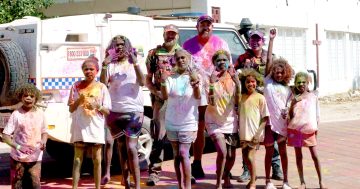
A recent Mission Australia has revealed the top concerns faced by youth. Photo: FatCamera/iStock.
The environment, economy and cost of living, and mental health have been ranked as the top three concerns of young Queenslanders, according to the country’s largest youth survey.
Mission Australia’s Youth Survey Report 2023 gathered insight from 19,501 Australians aged 15-19, with 3191 of them representing Queensland.
The top three concerns varied somewhat across the states. In Queensland, 33 per cent identified the environment as one of the most important issue, 31 per cent identified economy and financial matters as one of those most important issues and 29% responded that mental health was a top concern.
Mission Australia State Director Queensland Stephen Vine said the research showed young people were engaged with major environmental, political and societal issues facing the country.
“Transitioning into adulthood comes with its own challenges and these are more pronounced amidst the high cost of living, the lingering effect of the pandemic, climate change and the homelessness crisis,” he said.
The survey also showed that Aboriginal and Torres Strait Islander young people continued to rate their wellbeing lower than their non-Indigenous peers across a range of measure, especially the female respondents. The Aboriginal and Torres Strait Islander categories were done nationwide and not state-by-state, with 22.2 per cent of the First Nations respondents living in Queensland.
A greater proportion of Aboriginal and Torres Strait Islander youth also reported that they faced unfair treatment or discrimination compared to their non-Indigenous peers, though opposite to general wellbeing, this was more prevalent among the male respondents.
“The disparity and its persistence reminds us yet again of the urgent action that’s needed to make our country a place where all young people can thrive,” he said.
Barriers to education/career goals also showed a significant difference between Indigenous and non-Indigenous respondents, with a higher percentage of Indigenous respondents stating that they faced barriers in almost every category.
Discrimination (14.2 per cent vs 6.7 per cent), cultural responsibilities (7.3 vs 2.5) and lack of school support (18.9 vs 9.3) were some categories that stood out, with approximately double the number of Aboriginal and Torres Strait Islander respondents stating that they faced the barrier when compared to their non-Indigenous peers.
“Mission Australia is committed to working alongside Aboriginal and Torres Strait Islander groups and communities to serve the needs of First Nations young people, to provide a platform for their voices and to drive real social change,” he said.
Mr Vine said both Indigenous and non-Indigenous youth had made their major concerns clear.
“Through our Youth Survey, young people have shown they care about issues facing Australia and themselves, are strong and resilient, diverse and very capable,” he said.
“We need to take this opportunity to listen to these voices and act on their concerns to ensure young people have the best chance to reach their full potential.”
The 22nd annual Youth Survey was conducted between April and August, and results were shared with schools, governments and other key policy makers.




